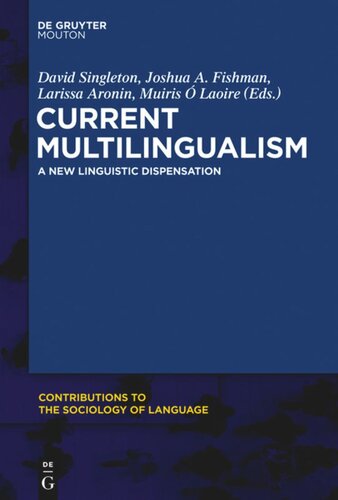

Most ebook files are in PDF format, so you can easily read them using various software such as Foxit Reader or directly on the Google Chrome browser.
Some ebook files are released by publishers in other formats such as .awz, .mobi, .epub, .fb2, etc. You may need to install specific software to read these formats on mobile/PC, such as Calibre.
Please read the tutorial at this link: https://ebookbell.com/faq
We offer FREE conversion to the popular formats you request; however, this may take some time. Therefore, right after payment, please email us, and we will try to provide the service as quickly as possible.
For some exceptional file formats or broken links (if any), please refrain from opening any disputes. Instead, email us first, and we will try to assist within a maximum of 6 hours.
EbookBell Team

0.0
0 reviewsThis volume approaches contemporary multilingualism as a new linguistic dispensation, in urgent need of research-led, reflective scrutiny. The book addresses the emergent global and local patterns of multingual use and acquisition across the world and explores the major trends that characterize today's multilingualism. It is divided into three parts on the basis of the broad themes: education (including multilingual learning in its general, theoretical aspects), sociolinguistic dimensions and language policy. The book's fifteen chapters, written by renowned international experts, discuss a range of issues relating to the quintessential and unique properties of multilingual situations – issues relevant to the challenges faced in different ways by researcher and practitioners alike. All the contributions share a focus on currently operative patterns of interaction between contexts, events and processes.